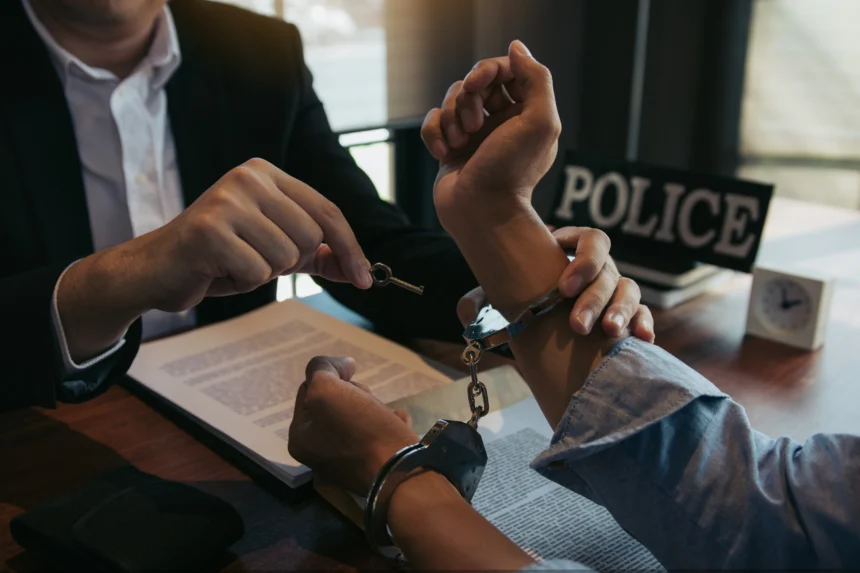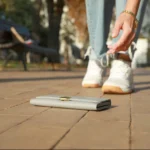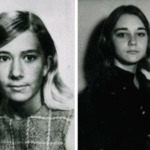It often starts with a late-night phone call. A friend is panicking, their voice shaking, asking for help. Maybe they leave something at your house—a bag, a box, a weapon. You don’t ask questions. You’re just trying to help.
But days later, police knock on your door. That bag you hid for your friend? It’s now proof in a crime case. Suddenly, you’re not just helping a buddy—you’re a suspect and the cops think you might be in on it.
This is how countless stories of obstruction of justice begin. Loyalty turns into legal trouble and the justice system doesn’t go easy on people who try to hide the truth.
What the Law Calls It
Hiding evidence is officially known as tampering with evidence. It covers any act of deliberately concealing, destroying, altering or blocking access to proof tied to a crime. It doesn’t matter if it’s a bloody shirt, a stolen item or a text message—tampering is a serious crime in itself.
Most laws treat this as a felony. In Colorado, for example, it’s a crime to “conceal physical evidence while believing that an official proceeding is pending or about to be instituted” (Colorado Revised Statutes § 18-8-610).
That single sentence carries weight: even believing an investigation is coming is enough to get you charged if you try to hide something.
Punishments depend on the jurisdiction and the severity of the crime involved but the pattern is clear: if you mess with evidence, you can face hefty fines or prison time.
When Loyalty Becomes a Crime
People don’t usually hide evidence out of malice. It’s often done for family or friends. A teenager deletes messages to protect a buddy, a girlfriend throws away a knife her boyfriend left behind, a neighbor hides a bag because “he just asked me to.”
But the law doesn’t see loyalty as an excuse. Prosecutors often file charges like obstruction of justice, accessory after the fact or tampering with physical evidence. These apply whether you physically hid something, destroyed it or simply advised someone else on how to cover their tracks.
One U.S. prosecutor summed it up bluntly: “Obstruction of justice is an assault on the judicial system—it affects everyone who relies on fair and impartial legal proceedings.” The sentiment is clear. The justice system needs everything to be clear and honest and if you mess with it, it’s like you’re attacking it straight up.
Rules Lawyers Have to Follow
Even lawyers—who are trained to defend their clients—face strict boundaries. They cannot tell a client to destroy, hide or alter evidence, if they do, they risk losing their license and facing charges themselves.
The Colorado Bar Association makes it plain: “A lawyer shall not conceal material having evidentiary value.” This principle is echoed by the American Bar Association’s Model Rules of Professional Conduct which stress that honesty is not optional in legal work.
If trained legal professionals are held to this standard, it’s clear that ordinary citizens—friends, siblings or parents—have no special protections when they choose to hide evidence.
A Judge’s Perspective
Courtrooms have seen these cases play out many times. In one memorable hearing, a judge addressed a defendant who had hidden evidence to protect her boyfriend. The judge said “Even acts motivated by loyalty to a friend cannot justify compromising the integrity of the legal process.”
That line sticks because it captures the heart of this issue. Courts may understand loyalty but they cannot allow it to overshadow justice.
In Colorado, a case reported by KSL shows just how seriously obstruction laws are taken. Investigators say Anthony Raymond Woodrow Sr., 47, faced two counts of obstruction of justice and a firearm possession charge after his son shot and killed a friend.
The gun was found in Woodrow’s home and police alleged he was involved in concealing or tampering with evidence. Even though he wasn’t the shooter, prosecutors charged him for interfering with the investigation.
The case shows a harsh truth. Even if you weren’t part of the original crime, taking possession of evidence makes you part of the cover-up.
The Digital Trail You Can’t Erase
Another case out of San Antonio, Texas, shows how fast things can go south when someone tries to delete video proof. Melanie Lopez, 24, allegedly deleted surveillance footage that showed her brother shooting a 17-year-old at a house party. She thought erasing the footage would make the evidence vanish.
But cops recovered the deleted video from backups—and they also found security footage of Melanie and her brother deleting it together. She was then arrested and charged with tampering with physical evidence, per KSAT.
Digital data—texts, emails, social media messages—often leaves a trace and prosecutors know how to find it. Deleting something doesn’t erase guilt; it often proves intent.
No Such Thing as “Friendship Privilege”
There are legal privileges that protect certain relationships—like attorney-client privilege or doctor-patient confidentiality—but “friendship privilege” isn’t one of them. Academic discussions and court rulings agree: anything you do or say to help a friend hide evidence can be used against you in court.
Even conversations between friends about covering up crimes are admissible. Loyalty is admirable in many areas of life but not when it comes to criminal investigations.
Modern investigations rarely rely on one piece of evidence. Police and prosecutors dig deep, looking at: Surveillance footage, phone records and messages, social media activity, bank transactions and witness testimony.
If they suspect someone of hiding or tampering with evidence, that person becomes part of the investigation. Prosecutors often add obstruction charges to the main case, making sentencing even harsher.
The Stakes for Ordinary People
The law expects every citizen to cooperate—or at least not interfere—with investigations. That doesn’t mean you have to volunteer information that isn’t requested but actively hiding, lying or destroying evidence crosses the line into criminal behavior.
Accessory charges can sometimes carry penalties close to those of the main offender. You don’t have to pull the trigger or commit the robbery to spend years behind bars; simply hiding the weapon or erasing key footage can land you there too.
In fact, you can be convicted of tampering even if the main crime hasn’t been proven yet. The act of hiding evidence stands on its own as a punishable offense.
Ethics as a Warning
Legal ethics aren’t just for lawyers—they offer a clear lesson for everyone. The American Bar Association makes it clear that destroying or hiding evidence isn’t just unethical; it’s a crime. Attorneys who cross this line face disbarment and prosecution.
Basically, these rules are there for a reason. If everyone just lied or hid stuff to protect their friends, the whole justice system would fall apart. Trying to cover for someone might feel like you’re being loyal, but honestly, you’re just getting yourself in trouble too.
Stories of people going to jail for hiding evidence are common because law enforcement treats obstruction as a direct challenge. Prosecutors often use these cases to send a message that you can’t mess with the truth.
And it’s not just about punishment, when evidence disappears, cases fall apart. Victims don’t get justice. Innocent people may stay under suspicion. The entire system suffers. That’s why the stakes are so high, even for someone who thought they were “just helping.”
The Takeaway
It’s easy to imagine yourself in these stories—a friend shows up scared, you feel pressure to help and you act without thinking. But once you cross that line, the law doesn’t care if you were being loyal. Hiding evidence makes you part of the crime.
The harsh truth is this: the best way to help a friend in legal trouble is not by covering for them but by encouraging them to come forward. The justice system is far more forgiving of honesty than it is of obstruction.




